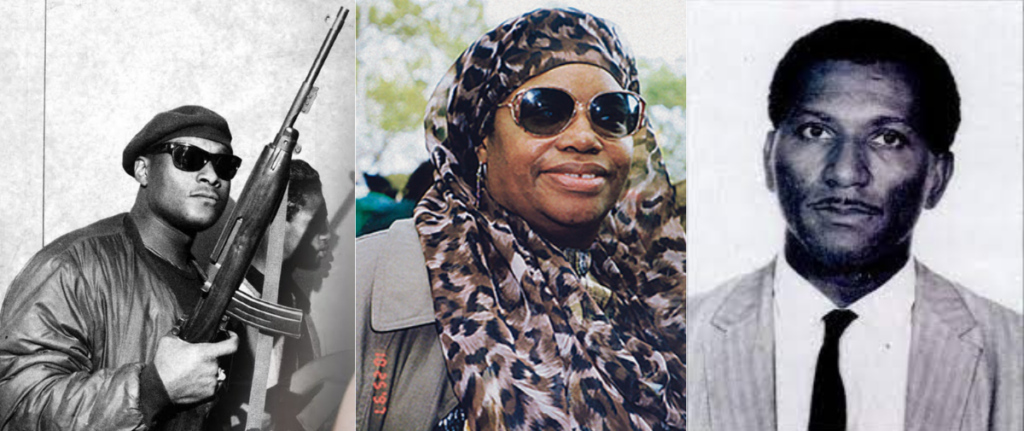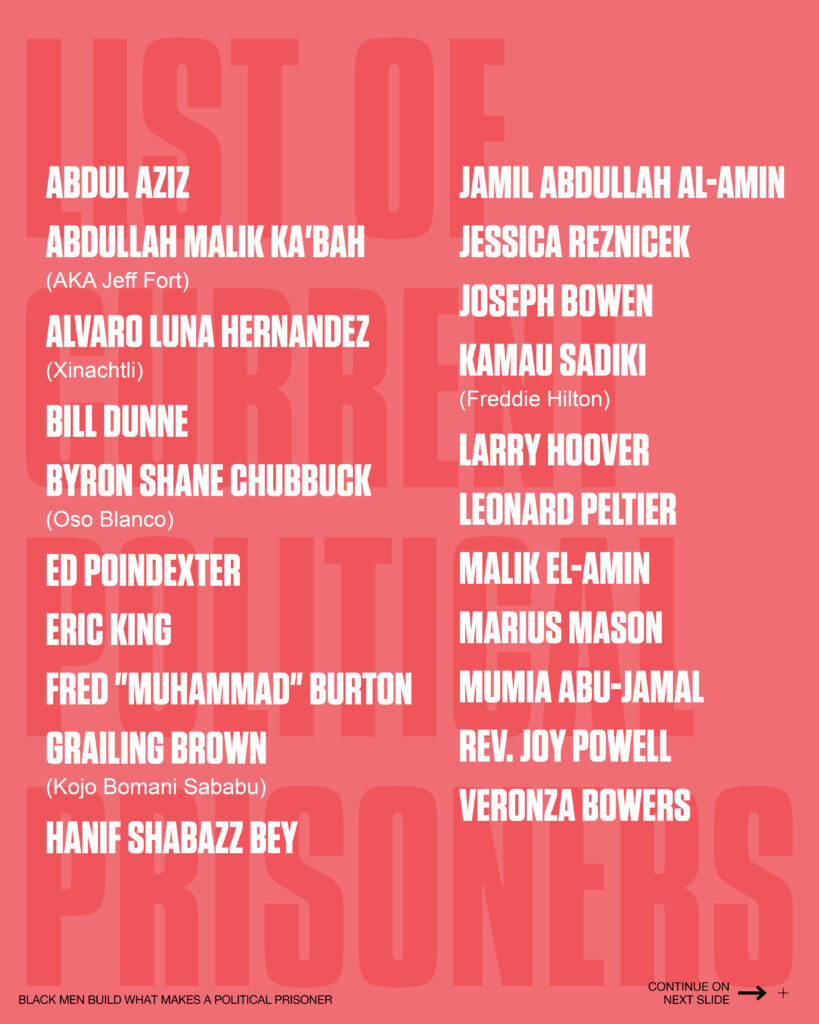What Makes a Political Prisoner
written by Jihad Abdulmumit, Chairperson, National Jericho Movement
an article from WARTIME: SPECIAL EDITION (FALL 2023)
The Jericho Movement to free all political prisoners was started in 1998 by, then political prisoner, Jalil Muntaqim, the late Safiya Bukhari, and Herman Ferguson.

Today Jericho remains a vibrant and strong vanguard organization that continues to work nonstop in educating the public about the reality of political prisoners and campaigning to free them.
The Jericho membership consists of Muslims, activists, and revolutionary sisters and brothers from various walks of life. Our leadership consists of former political prisoners, members of the Black Panther Party, and the Black Liberation Army. There are Chapters and members throughout the United States, with larger chapters in New York, Boston, and Oakland.
True to its original mission, Jericho supports political prisoners in the United States, aswell as around the world. Jericho defines political prisoners as “anyone captured/arrested because of their conscious involvement in the various aspects of the liberation struggles of this country, including protests, actions against capitalist structures, educating, organizing, and defending communities against police violence, water and planet protectors, and movement builders.” There are also many instances where sisters and brothers become politicized in prison, as with the noble example of Comrade George Jackson.
Nevertheless, Jericho supports all legitimate political prisoners and POWs, nationally foremost, but internationally as well. Jericho defines Prisoners of War (POWs) as “combatants who have been captured while engaging in armed struggle in support of national liberation or against American imperialism, white supremacy, and all forms of colonialism and neo-colonialism.” Oftentimes, the term political prisoner is used for POW because the designation POW is not commonly understood in the United States. So, for educational and organizing purposes, and to make it more easily accepted and understood by the people at this stage of struggle, Jericho uses the designation political prisoner for POW as well. Every POW is a political prisoner, but every political prisoner may not be a POW.
Interestingly, the Geneva Convention definition of POW is a soldier, sailor, airman, or marine who is imprisoned by an enemy power during or immediately after an armed conflict. The laws apply from the moment a prisoner is captured until he is released or repatriated. One of the main provisions of the convention makes it illegal to torture prisoners and states that a prisoner can only be required to give his name, date of birth, rank, and service number (if applicable). Article 4 of the Third Geneva Convention protects captured military personnel, some guerrilla fighters, and certain civilians.
The United States has never afforded these international rights to our freedom fighters (POWs) who have picked up arms to fight against racism and the brutal attacks on our people and communities. The government’s narrative of our political prisoners and POWs as being no more than common criminals is very influential and pervasive. Thus, Jericho takes pains to make sure we understand that we have political prisoners in this country, just like around the world, who have fought and who are fighting for our freedom. Jericho renders support to political prisoners in a multitude of ways:
- providing direct assistance to political prisoners by visiting them, financially supporting family visits, giving food packages and commissary funds
- organizing written support and phone calls to parole boards and governors’ offices requesting that parole or commutation of sentence be granted
- conducting educational forums about political prisoners, who they are, how to support them, and offering explanations and analyses of the oppressive conditions that political prisoners fought against
- collaborating and building sustainable networks with other organizations and formations doing the work to support and free political prisoners
- working to inspire and mobilize young people to carry the torch to free all political prisoners.
Please understand that any and all liberation movements (nationally and internationally) that struggle to abolish systems of oppression, colonialism/neo-colonialism, racism, and exploitation, and fight for self-determination and reparations, must center the struggle to support and free its activists and freedom fighters.
You can help by:
1. Connecting with a local Jericho chapter to either join or volunteer
2. Working within your own circles and spheres of influence to support a political prisoner
3. Holding a political prisoner writing event in your home or community
4. Making your own family, loved ones, and friends aware of the reality and existence of political prisoners in the United States
5. Donate generously
6. Being a conscious and kind person to others doing the work
Learn More About the Jericho Movement: www.thejerichomovement.com

